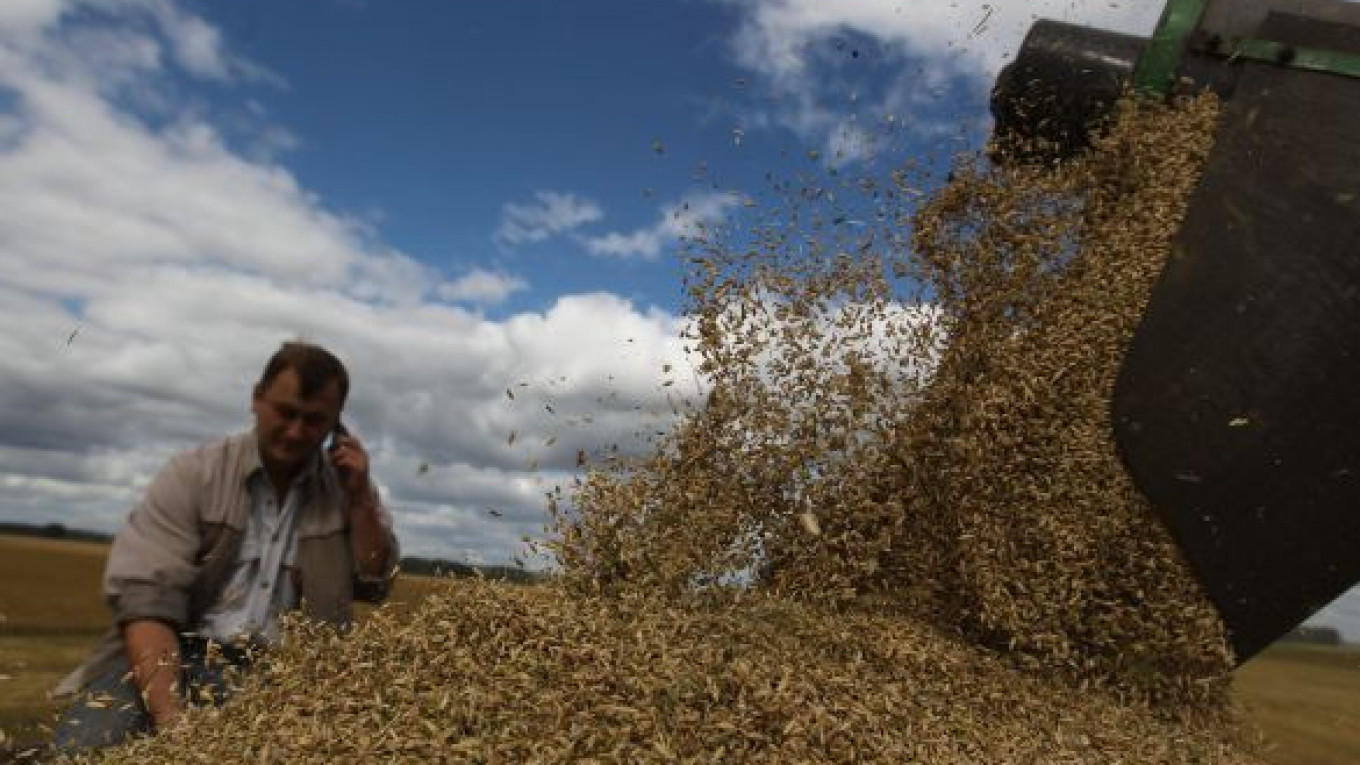Wheat buyers in Asia are looking to replace Indian and Australian cargoes in the lower-end feed grain market with cheaper supplies from the Black Sea, which will be returning to the region after a three-year gap.
But quality-sensitive consumers in Asia are unlikely to substitute their food supplies with Russian and Ukrainian grain, despite a ban on U.S. white wheat by major consumers Japan and South Korea.
Thailand and the Philippines have already bought some 200,000 tons of Black Sea wheat in recent deals for animal feed and traders expect between 2 and 2.5 million tons to flow into Asia in the year to June 2014.
"Black Sea wheat is going to corner the Asian feed market as it is the cheapest origin as of now," said a trading manager with an international trading company in Singapore.
"On the milling side there is not too much excitement but they might sell some cargoes here and there to buyers who use low-quality wheat for blending."
Australia dominated Asia's animal feed market in 2010-11 and 2011-12 as the country produced large volumes of lower-quality wheat after unseasonal rains for two consecutive seasons. India has been aggressively selling cargoes in 2012-13.
But wheat prices in Australia have firmed in recent months as supplies tighten following robust exports since September.
Thailand bought some 150,000 tons of wheat from the Black Sea region this month at $280-$285 a ton, including cost and freight, compared with a similar variety of Indian wheat quoted at about $320-$325 a ton, traders said.
The Philippines took one cargo of 50,000 tons at $282 a ton.
Ukraine's farm ministry has estimated the country's wheat output will rise to about 20 million tons this year, up from 15.8 million tons last year. Russia's state forecaster expects its 2013 grain production to increase 31 percent to 93 million tons, with the harvest expected to start two weeks earlier than usual.
"We are expecting a bumper harvest in Russia, and prices will come under further pressure when harvesting picks up," a Moscow-based trader said.
Black Sea wheat exports to Asia had dried up in the last three years on lower production in Russia and Ukraine due to drought and in the face of the higher volumes of lower-grade wheat from Australia and India.
Buyers will be more choosy for food wheat even though supplies have tightened in Japan and South Korea, which have shunned U.S. white wheat imports since late May after the discovery of an unapproved genetically engineered strain in the Pacific Northwest.
"Currently, we are considering alternatives from three countries that we import from," said Toru Hisazome, in charge of grain trading at Japan's farm ministry, referring to substitutes for U.S. western white wheat.
"We are trying to see if there are replacements available in the U.S., Canada and Australia, and we are trying to import samples for tests."
Japan prefers to stick to its traditional suppliers as it would take time to set up new systems to check pesticide residues for shipments from other origins, he said.
Chicago wheat slid to a two-month low this week as the U.S. winter wheat harvest progressed, boosting supplies when demand remains weak on concerns over the GMO wheat discovered sprouting on a farm in Oregon.
Asian wheat buyers have remained concerned U.S. imports could be tainted with GMO even as U.S. government findings showed the unapproved gene-altered strain appeared to be isolated to one field.
South Korea, which annually imports around 5.0 to 5.5 million tons of wheat, is not considering Black Sea wheat although one of its flour millers is seeking samples from Europe.
"It is hard for Korean flour millers to switch to wheat from other origins immediately as specifications are different," said a Seoul-based trader.
"Local flour millers are concerned about negative feedback in the market if they switch U.S. wheat to other origins [for use] in producing noodles and bread."
A Message from The Moscow Times:
Dear readers,
We are facing unprecedented challenges. Russia's Prosecutor General's Office has designated The Moscow Times as an "undesirable" organization, criminalizing our work and putting our staff at risk of prosecution. This follows our earlier unjust labeling as a "foreign agent."
These actions are direct attempts to silence independent journalism in Russia. The authorities claim our work "discredits the decisions of the Russian leadership." We see things differently: we strive to provide accurate, unbiased reporting on Russia.
We, the journalists of The Moscow Times, refuse to be silenced. But to continue our work, we need your help.
Your support, no matter how small, makes a world of difference. If you can, please support us monthly starting from just $2. It's quick to set up, and every contribution makes a significant impact.
By supporting The Moscow Times, you're defending open, independent journalism in the face of repression. Thank you for standing with us.
Remind me later.






